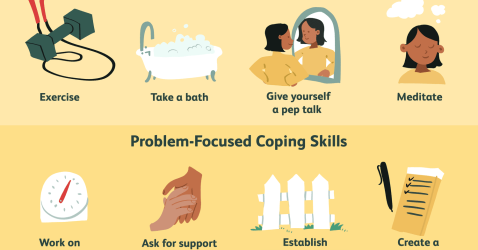What Impact Does Chronic Stress Have On The Immune System?
Chronic stress can do more than just weigh you down mentally and emotionally – it can also have a detrimental effect on your immune system. When you find yourself caught in a cycle of ongoing stress, your body’s natural defense mechanisms can become compromised, leaving you more susceptible to illnesses and infections. In this article, we will explore just how chronic stress impacts your immune system and the steps you can take to mitigate its effects. So, sit back and prepare to discover the fascinating relationship between stress and your body’s ability to fight off diseases and stay healthy.

1. Overview of Chronic Stress and Immune System
1.1 Definition of Chronic Stress
Chronic stress refers to long-term, ongoing stress that persists over an extended period of time. Unlike acute stress, which is temporary and quickly resolved, chronic stress can be caused by various factors such as work pressure, financial difficulties, relationship problems, or traumatic events that continue to exert an influence on an individual’s daily life. It is important to note that chronic stress differs from everyday stressors, as it can significantly affect both physical and psychological well-being.
1.2 Functions of the Immune System
The immune system plays a crucial role in defending the body against harmful pathogens, such as bacteria, viruses, and parasites. It consists of various components, including white blood cells, antibodies, and lymphoid organs, which work together to identify and eliminate foreign invaders. Additionally, the immune system also plays a role in surveillance and identifying abnormal cells within the body to prevent the development of diseases like cancer. Overall, the immune system is responsible for maintaining the body’s health and overall well-being.
2. Chronic Stress and Immune System Interaction
2.1 Stress Response and the Immune System
When an individual experiences stress, the body initiates a response known as the stress response or “fight or flight” response. The stress response is regulated by the hypothalamic-pituitary-adrenal (HPA) axis, which releases stress hormones, including cortisol and adrenaline. While this response can be beneficial in acute stress situations, chronic stress can disrupt the balance and functionality of the immune system.
2.2 Influence of Stress on Immune Cells
Chronic stress can have a profound impact on immune cells, leading to alterations in their function and behavior. For example, stress hormones can suppress the production of immune cells, such as lymphocytes, which are essential for mounting an effective immune response. Moreover, chronic stress can also promote the release of pro-inflammatory molecules, leading to chronic low-grade inflammation that can compromise immune system function and overall health.
3. Impact of Chronic Stress on Immune Function
3.1 Altered Immune Responses
Chronic stress can disrupt the balance of the immune system, resulting in altered immune responses. For instance, it can impair the immune system’s ability to differentiate between self and non-self, leading to the development of autoimmune disorders, where the immune system mistakenly attacks healthy tissues. Additionally, chronic stress can also weaken the immune response to infections, making individuals more susceptible to common illnesses, such as colds or the flu.
3.2 Increased Vulnerability to Infections
Research has shown that chronic stress can weaken immune defenses, making individuals more vulnerable to infections. This is particularly evident in cases of chronic viral infections, such as herpes or human papillomavirus (HPV), where stress can trigger viral reactivation or increase the severity of symptoms. Furthermore, chronic stress can compromise the body’s ability to effectively fight off bacteria and viruses, leading to recurrent or persistent infections.
3.3 Impact on Autoimmune Disorders
Autoimmune disorders occur when the immune system mistakenly attacks healthy tissues, resulting in chronic inflammation and damage to organs or systems. Chronic stress has been implicated in the onset and progression of autoimmune diseases, including rheumatoid arthritis, multiple sclerosis, and lupus. The dysregulation of immune responses caused by chronic stress can contribute to the development of autoimmunity and exacerbate existing autoimmune conditions.
4. Stress-Related Hormones and Immune System
4.1 Activation of the Hypothalamic-Pituitary-Adrenal (HPA) Axis
The HPA axis is a major pathway involved in the stress response. When an individual experiences stress, the hypothalamus releases corticotropin-releasing hormone (CRH), which stimulates the pituitary gland to release adrenocorticotropic hormone (ACTH). ACTH then signals the adrenal glands to produce cortisol, the primary stress hormone. Elevated cortisol levels, induced by chronic stress, can have profound effects on the immune system.
4.2 Cortisol and Immune Function
Cortisol plays a critical role in immune system regulation. While acute cortisol release can enhance immune responses, chronically elevated cortisol levels can lead to immune suppression. Prolonged exposure to cortisol can hinder the production and function of immune cells, compromise the ability to fight off infections, and impair the body’s ability to regulate inflammation. Therefore, chronic stress-induced cortisol dysregulation can have detrimental effects on immune system function.

5. Chronic Stress and Inflammation
5.1 Role of Inflammation in the Immune System
Inflammation is a normal response of the immune system to infection or injury. It involves the recruitment of immune cells and the release of pro-inflammatory molecules to eliminate pathogens and initiate the healing process. However, chronic inflammation can be detrimental to health and is associated with various diseases, including cardiovascular diseases, autoimmune disorders, and certain cancers.
5.2 Chronic Inflammation and Stress
Chronic stress can contribute to the development of chronic low-grade inflammation. The continuous activation of the stress response and the release of stress hormones, such as cortisol, can promote the release of pro-inflammatory molecules. This chronic inflammation can damage healthy tissues and organs, leading to increased risk for the development of various diseases. Additionally, chronic inflammation can further perpetuate stress, creating a vicious cycle between stress, inflammation, and immune system dysregulation.
6. Psychological Factors and Immune System Modulation
6.1 Impact of Psychological Stressors
Psychological stressors, such as chronic anxiety, depression, or social isolation, can significantly impact the immune system. Negative emotional states and psychological stress can dysregulate immune responses, promoting immune system dysfunction. For example, chronic psychological stress can suppress immune cell activity, impair the function of natural killer cells, and compromise the effectiveness of vaccines.
6.2 Effects of Positive Psychological States
Conversely, positive psychological states, such as optimism, social support, and mindfulness, can have beneficial effects on the immune system. These positive factors can enhance immune responses, promote immune cell activity, and reduce inflammation. Engaging in activities that promote positive emotions and practicing mindfulness techniques can help mitigate the detrimental effects of chronic stress on the immune system.

7. Chronic Stress and Disease Susceptibility
7.1 Stress and Cardiovascular Diseases
Chronic stress has been linked to an increased risk of cardiovascular diseases. The continuous release of stress hormones, such as cortisol, can contribute to elevated blood pressure, increased heart rate, and the deposition of cholesterol in blood vessels, all of which are risk factors for cardiovascular diseases. Additionally, chronic inflammation associated with stress can also contribute to the development and progression of cardiovascular conditions.
7.2 Stress and Cancer
While stress alone does not directly cause cancer, chronic stress can influence various processes that contribute to cancer development and progression. Prolonged stress can suppress immune function, impair DNA repair mechanisms, promote the growth of cancer cells, and facilitate the formation of new blood vessels to support tumor growth. These factors can increase an individual’s susceptibility to cancer and impact their outcomes.
7.3 Stress and Autoimmune Diseases
Autoimmune diseases, characterized by the immune system attacking healthy tissues, have a complex relationship with chronic stress. Stress can trigger or exacerbate autoimmune conditions by dysregulating immune responses and promoting inflammation. Additionally, the psychological and emotional impact of living with a chronic autoimmune disease can cause ongoing stress, further compromising the immune system and worsening symptoms.
8. Coping Mechanisms and Immune System
8.1 Effectiveness of Coping Strategies
Developing effective coping mechanisms to manage chronic stress is crucial for maintaining immune system health. Engaging in regular exercise, practicing relaxation techniques, maintaining a balanced diet, and seeking social support are all effective coping strategies that can help counteract the negative effects of chronic stress on the immune system. Managing stress effectively can promote immune system resilience and overall well-being.
8.2 Mindfulness and Stress Reduction
Mindfulness practices, such as meditation or yoga, have been shown to be effective in reducing stress levels and promoting a sense of calm. These practices can modulate the stress response, lower cortisol levels, and enhance immune system function. Incorporating mindfulness techniques into daily routines can help individuals better navigate chronic stress and support optimal immune system functioning.
10. Conclusion
Chronic stress has a significant impact on the immune system, compromising its ability to defend against pathogens, regulate inflammation, and maintain overall health. Prolonged stress can disrupt immune system function, increase susceptibility to infections, exacerbate autoimmune disorders, and contribute to the development and progression of various diseases, including cardiovascular diseases and cancer. Understanding the complex interactions between chronic stress and the immune system is essential for developing effective coping strategies and promoting immune system resilience. By managing stress levels and engaging in activities that promote positivity and mindfulness, individuals can support their immune system health and overall well-being.

















